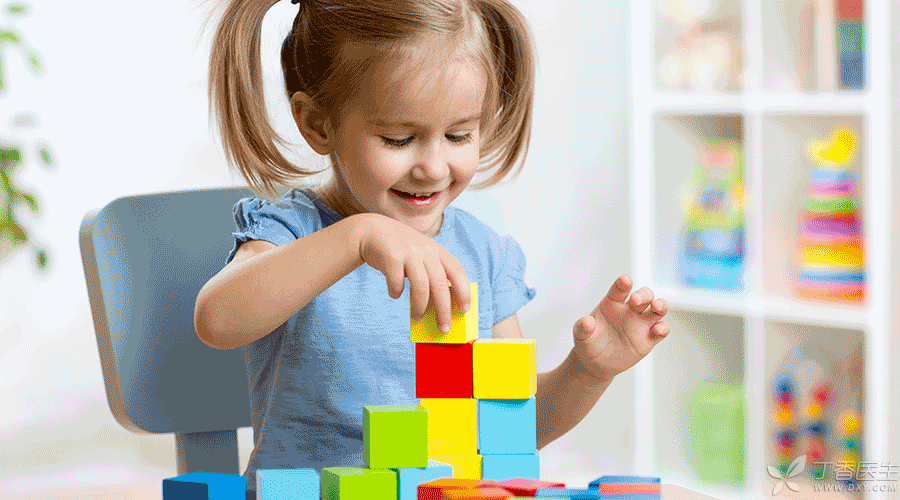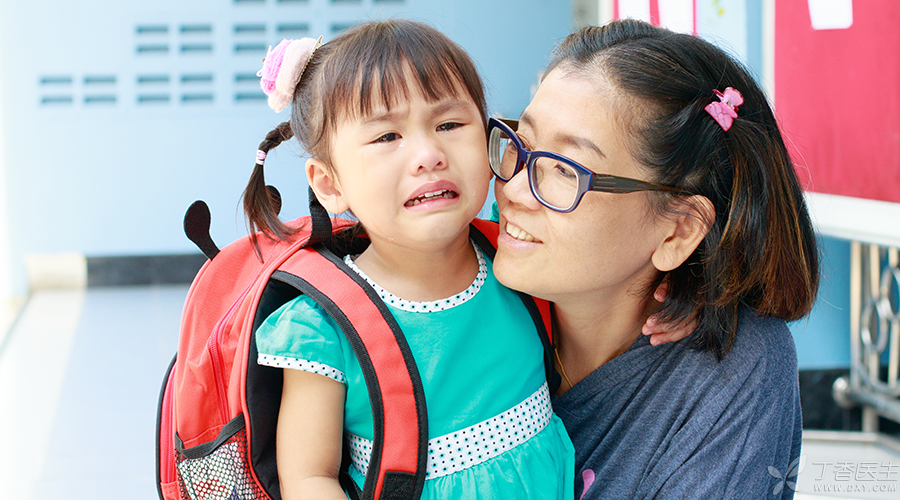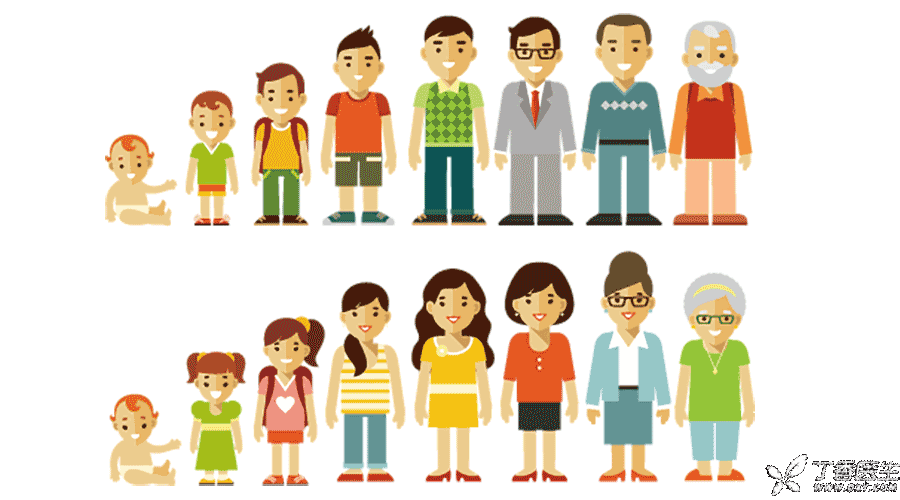
As a child psychological consultant, working for three years, the most often heard parents express the three reasons for visiting are: insufficient concentration, poor academic performance and bad temper. Among them, concentration and performance are usually informed by parents on their own initiative, and temper problems are mostly discussed with the deepening of understanding.
In fact, among the large number of visits I received due to [concentration] problems, very few children actually had attention problems. In the attention screening tests of counseling centers, these children usually showed no attention problems.
This makes me begin to pay attention to what happened in what. Is it what that makes parents feel their children [inattentive]?
How to distinguish whether children have attention problems?
First of all, I would like to suggest that all parents who think their children have attention problems should carefully observe how their children pay attention to the content of interest.
If children can watch their favorite cartoons episode after episode without turning their eyes; If children can concentrate on their favorite activities, such as playing chess, drawing pictures and reading comic books, then it can be said that children are more likely to have no attention deficit.
Children with real attention deficit have all-round problems in attention distribution and concentration, covering all aspects of their lives. Therefore, the core of attention deficit hyperactivity disorder (commonly known as ADHD) is [not to do, not to do].
It should be emphasized that when children have problems that make parents suspect or worry about attention, seeking professional evaluation and help is still the most recommended approach.
The child’s attention is not enough, may it be because of what?
There are six common reasons:
1. The environment is not good enough to concentrate.
When a child lives in an uneasy environment, he cannot concentrate on the current task.
For example, children are in a state where they need to move and change their living environment. Families are facing a major crisis; Parents or family members have bad relations and are often in quarrels. Family members have different attitudes towards children and there is no uniform standard.
I believe that the vast majority of adults will also be affected when facing these situations, but the strange thing is that parents often naively think that their children do not understand what and will not be disturbed by these problems at all.
Children may not have the ability to fully understand what is happening in the surrounding environment, but children are fully aware of and feel the emotional flow in the environment, and at the same time try to use his only knowledge system to construct a fact that he can accept. When the experience he has is not enough to fully understand, he will supplement it with fantasy.
The most common result of this is that, I tend to blame myself for all the problems-the world is not good because I am not good enough. Sometimes, This distorted logic can be [I have to be a bad person, I have to be troublesome enough, so that the world I live in is no longer bad] or [I am an unworthy person, so the world is so bad to me, and I should punish myself like this].

What do parents do?
Parents should provide their children with a quiet and comfortable learning environment as much as possible, and the education methods between husband and wife should be consistent. In addition, when there are forced changes and quarrels in the family, please also let the children understand that he did not cause these turbulence.
2. Children receive too little attention
Sometimes children play games not because they really like the games themselves, Instead, children want others to notice themselves. When the game has no audience, the game is meaningless, especially when it is a prank. When I share with my parents my observations and experiences when playing with those especially naughty children, the most common response I hear is “isn’t it just children playing] or” I have never noticed this “.
When children have unspeakable wishes, such as to get more attention, they can only [play] or [play]. If these moments happen during study and class (these moments are often when teachers and parents move their attention slightly away from the child), it is easy to give the impression that the child is not paying attention at all.
What do parents do?
Give children full attention and listen to their demands. Combining education with fun, participate in children’s learning, so that children can get more fun from learning.
3. Children don’t know how to do it
I have found that sometimes children do not know what what they are doing and feel at a loss as to what to do. Some parents will say that children do not concentrate on practicing piano or are impatient with copying homework, but children’s understanding may be that they are completely confused about why they are doing this.
[Why do you want to go to school? [Why is there a class? ] [Why do you want to do your homework? ] These seemingly simple questions are really bothering many children-if in a children’s world, parents do not have time to play with them at school, classes are the punishment of their families, homework is just to play [the darkness before dawn], how many people can devote interest and concentration to these [the gloomy side of life]?
What do parents do?
Communicate with children and let them learn the meaning and value. In addition, never use learning as a tool to punish children.

4. Children’s sense of autonomy has not been established and they have lost interest in learning.
I met some small visitors, When I tried to make a fixed time of week with their parents, Parents will tell me about their children’s weekly schedule, I can’t believe my ears: in the most exaggerated case, a child who has not yet entered primary school needs to go to kindergarten on weekdays, attend various hosting tutoring after school, and attend three different interest classes every week… These parents will complain to me that the child has no motivation, does not concentrate, and always looks like dead mouse feels no cold.
When I work with these children, What makes me feel most difficult is that I find it difficult to discover the vitality that children usually have from them. Some of them look tired. Some feel lazy, others are directly isolated, as if they do not have [themselves]. There seems to be no choice left to them in their life, either to become [good children] in their parents’ minds according to their parents’ expectations and requirements, or to delay and resist.
What do parents do?
To give children the right to make study plans for themselves, parents play the role of participants rather than deciders.
We can hope for our children, but we cannot let them completely become tools to replace us to realize our wishes.
5. Parents intervene too much and children cannot grow up on their own.
The process of growth is very awkward and is always full of various contradictions. One end of these contradictions points to a more independent life, with more rights, more autonomy and more responsibilities. On the other hand, it points to a more caring state in the early stage, eager for parents and society to have more tolerance and protection for themselves, and at the same time means more restrictions.
This is what everyone needs to face when growing up. However, sometimes, parents will hope that children will not have to bear the pain caused by contradictions and conflicts, and will unconsciously involve themselves in the internal contradictions of children’s growth.
The most typical example is whether to watch children do their homework.
Parents often feel that they are in a dilemma: On the one hand, I think it is not good to always urge and supervise children to do their homework, However, on the other hand, they are angered by the children’s inattention to finishing their homework, various procrastinations and distractions, which make them gaunt. Parents’ conflicts and pains come from taking the problems that children need to solve themselves-such as the balance between playing and learning, time management, etc.-as their own problems.
When parents are involved in the children’s own internal conflicts, On the one hand, I make myself anxious, On the one hand, it will also take away the opportunity for children to adjust and deal with themselves, so children’s own conflicts will turn into conflicts between parents and children. When children enter puberty, this conflict will become more huge and intense, so it is easier for us to see the parent-child relationship like enemies in middle school students.
What do parents do?
There are some conflicts and contradictions that children must experience in the process of growing up. After experiencing, they will grow up. Parents, please give children the right to experience themselves.

6. Too young to do it
In other words, parents’ requirements and expectations for their children have exceeded their normal ability level at this age.
Children’s psychological development has its own laws, When I was 3 years old, I did very difficult things. At the age of 4, it is likely to be a natural and easy thing. However, the atmosphere of ignoring objective laws and desperately emphasizing competition and advancement has always existed in society. The Internet often talks about the unhealthy tendency of kindergarten to be a primary school. This is a social problem, but it is worth every parent’s serious consideration. What is chasing us behind, and we are worried about what, so that we cannot see the real situation of our children clearly?
What do parents do?
To understand the normal development law of the child, as long as the child’s behavior is the normal performance of his stage of development, parents can not worry.
Put aside the utilitarian heart and let children grow up according to the law of psychological development [step by step].

If I were to sum up my work with children over the past three years, I think it is most appropriate that I have been trying to rediscover children, their families and myself with children and their parents for the past three years. And in the process, I think together: it is what who has prevented us from embracing reality in the past.
I hope you can also take the time to think about this problem after reading this article.
